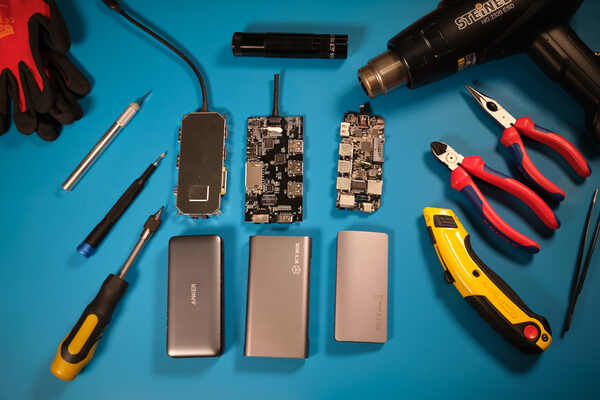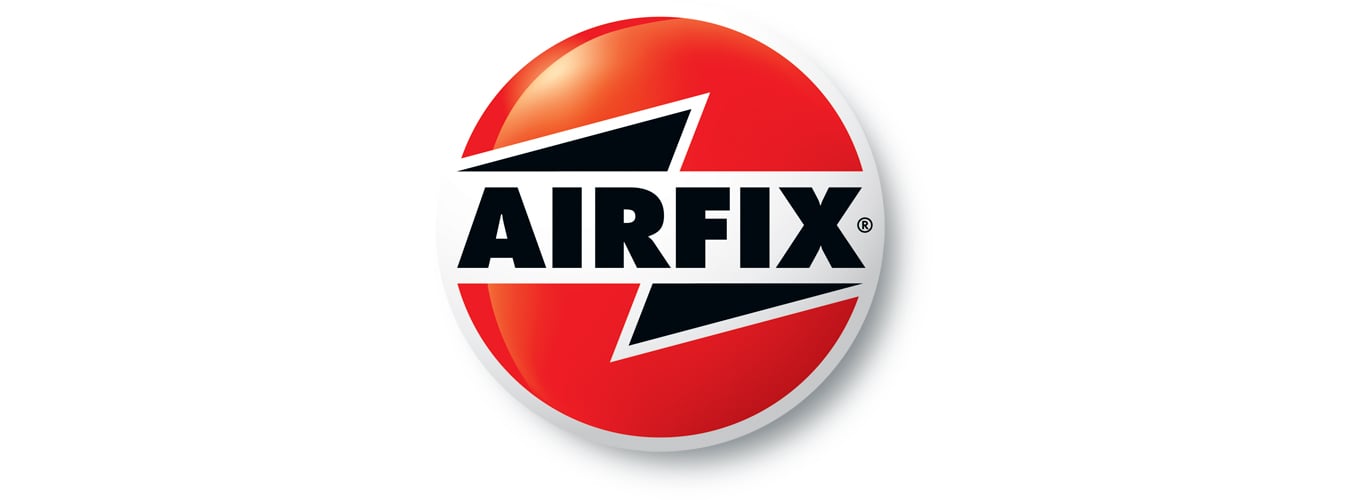- cross-posted to:
- technology@lemmy.ml
- cross-posted to:
- technology@lemmy.ml
I was looking for a new USB-c hub and came across this article. It’s an interesting write-up of what is on the inside of some popular options
Just imagine how easy things would have been if these 3000$+ computers had the necessary ports built into them.
3 usb type-c and two type-A ports, hdmi out, sd card reader should be bare minimum. A 3.5mm headset jack and collapsible rj45 or very least rj45 to usb adapter should also be included on machines intended for professional use.
Edit: for those complaining about having to disconnect multiple cables, sure you can buy a hub or dock if you want ease of use. But that would still be possible on a machine with its own ports. You don’t have to have a working dock to actually use the machine.
Just imagine how easy things would have been if these 3000$+ computers had the necessary ports built into them.
That would only solve some problems. My typical problem of not wanting to wire up 6 or 7 cables every time I switch between home-office and office would still go unsolved. Just plugging in a hub that already has keyboard, mouse, headset, monitors, and preferably even power attached is very nice to be actually flexible with the setup (also when quickly moving to a conference room and back).
You do realize that you can have both, right? Your laptop could have 6/7 ports but you could choose to use a usb-c hub for convenience. And, if you’re travelling or your hub breaks, you still have all the ports in your laptop.
Which is, why I said, it would only solve some problems (stronger highlight this time). Sure I can have both. But the hub would still be a problem if it broke after not even a year and/or burns my house down.
I have some small usb adapters I keep around for travel that work with all my laptops. They work fine in a pinch for my desk it my main hub goes down.
No thanks, I plug 2 cables into my MBP and get:
- Multiple USB-A/USB-C ports
- Ethernet
- 3 monitors
- Power
- Sound
- SD card reader
- And a few other things I don’t use
Contrast that with my old MBP that had “all the ports”, I’d have to plug multiple things in, I still had to use hubs, and it struggled to drive 2 monitors. No thanks.
3 usb type-c and two type-A ports, hdmi out, sd card reader should be bare minimum. A 3.5mm headset jack and collapsible rj45 or very least rj45 to usb adapter should also be included on machines intended for professional use.
Who decided that’s a work requirement? 2 usb c, 1 usb a, and hdmi is about all the average person needs for work use. Anything more than that and you should just get accessories. Usb hubs aren’t a new concept.
“Unfortunately, looking at the hardware information, … it’s another Realtek RTL8153 …”

I’m confused why everybody calls these USB hubs – they aren’t hubs they are docking stations. A hub provides N USB ports so you can connect multiple. These provide other ports like ethernet, HDMI, etc. But do nothing if you actually want to plug more USB devices into your computer.
The best actual USB C hub I found is this:
https://www.cambrionix.com/products/thundersync3-c10
It is crazy expensive, and still doesn’t work that well, but it seems to be the best thing on the market. I still have to power cycle mine once a week or so because the connected devices stop being visible.
That’s because it’s not a USB C hub, it’s a Thunderbolt 3 hub. And the claims it makes are just about Thunderbolt 3 specs. There are better and cheaper Thunderbolt 3 and 4 hubs.
Any recommendations? I primarily want to plug in a lot of USB C devices.
Many companies changed the name of dockimg stations to port replicators (ex. Dell) specifically because you can no longer set your laptop/notebook on it to charge. So instead of 'docking" you are adding/replicating ports
Thank you, I love exactly these kind of dives. Realtek makes absolute trash, they just happen to make affordable trash. The DP to HDMI chip was interesting, given most of these dongles provide hdmi I assumed the main usb-c hub actually did HDMI protocol translation internally, or I think alt-mode has proper hdmi support?
I go through these pretty quick too, they don’t last long, I had good luck with the Startech dkt31chpdl and an anker which is an upgraded version of the one you “liked”.
Overall I’ve found they mostly die, I have a Lention that seems to be chugging along, as well as 2 Lionwei’s that haven’t given me trouble yet, but mostly I’ve found Caldigit thunderbolt does the job reliably and for more than 6 months at a time.
Alt-Mode HDMI stopped at 1.4b. Everything now is DisplayPort Alt-Mode to HDMI. The translation is simple enough it can be done passively and components can fit inside the connector, meaning it looks like a simple cable.
Drawbacks are you can’t get GSync, Freesync, or VRR. Also Nvidia’s drivers only output 2.0 Audio over DisplayPort, so no surround sound.
Til. Shame, but DP is much better anyway. That explains why I can rarely get more than 1080p out of those anyway, only have a few good ones that go to qwxga.
Hdmi is such a disaster of a standard, I wish they’d just make new versions a different connector running DP, everyone would be happy, though the 5 people using the ethernet support would be SOL.
HDMI has ethernet support?
I mean, technically:
https://thehometheaterdiy.com/hdmi-with-ethernet/
Never seen anyone use it before, but it’s there.
HDMI has ethernet support?
On YouTube I see guys make custom connectors for old ass computers with extinct connectors. Also as a child I made TV antennas out of paper clips. Cheap is king baby
The protocols were way simpler, that’s why.
Go read about UART (which you’ll find in the Serial connector) which is still used nowadays as one of the standard peripheral inside microcontrollers (including in the cheapest $0.25 ones) and then go read about USB (you can start with USB HID, which is just the stuff for mice, keyboards, joysticks and the like).
Ditto for VGA versus HDMI.
You need a bloody software stack (which in dedicated adaptor chips is transformed by circuit generation software into a in-silico hardware implementation) for the newer stuff whilst the old stuff could often be done with a bunch of resistors and a handful of digital basic elements (no more complex than flip-flops).
This resonates so much with me.
I had a similar experience with dongles, but also with some hardware like screwdriver kits.
It seems like the amount of choice we get nowadays is inversely proportional to the quality of the products.
It can become excruciating to shop for the most basic items on Amazon, because most of them are just cheap shit.
That’s the price you pay for relocating so much stuff.
My Amazon use has declined greatly since 2018ish. I now only go there if I know exactly what I want and need it relatively quickly. Also it’s usually £5 or so more expensive because they know people will pay it for the convenience.
The deluge of Chinese tut and guff makes any kind of browsing impossible.
deleted by creator
Terrific write up. It’s a shame that these reputable companies aren’t producing their own hub thru R&D, good part sourcing and finding factories with stricter standards. White label OEMs being pushed at 4-7x the cost of what you can actually get it for is pretty insulting.
If yoi are looking for something good, Microsoft Surface Docks tends to be a solid yet underrated option that I rarely see people talk about, as their hardware design is usually exceptionally good.
Otherwise, I’d say Lenovo or Dell’s business lines, because corporate IT had to deploy so many of them that most issues would be ironed out at that point.
I got UGreen. Working rock solid for about a year 9-5.
It has power pass through to charge the laptop.
Also if anyone has recommendations, I’d appreciate those too!
deleted by creator
Thank you! I had an Anker hub in the past, but had some trouble with the Ethernet dropping when using it heavily (ex. during a zoom meeting or when moving large files). I’m not sure if that was an Anker issue or just something with hubs in general. I’m still open to another Anker one, but I was looking for other options as well
deleted by creator
Anker is a great brand for anything power related (chargers, cables, batteries, etc). Everything else, not so much
Lenovo USB C hubs. I went with them specifically because of the issues in this article, and I trust them to at least thoroughly validate their designs. Can’t speak for MacOS but mine works well with a thinkpad. The product lineup is confusing but they publish complete specs and the products generally perform as advertised. There’s also a decent used market at fair prices, presumably because they’re widely used and subsequently sold off by businesses/employees.
Rebadging OEM stuff is the name of the game for pretty much all low and mid tier companies. D-Link and their ilk. They presumably employ a small team to tweak the designs and ensure they’re compliant and safe(or maybe they outsource that too). But designing stuff from scratch is the preserve of the mega corps.
Docks in particular surprised me because I expected them to be fairly simply devices routing signals. They’re not and the portable ones are pushing the limits in terms of throughput and current draw possible in a small package. Hence, even if you’re not going to buy from a large company, you should use them as a guide to determine what’s practically possible. If Lenovo or Dell or whatever aren’t shipping a comparable device to the one your eyeballing from some random company then the chances are it’s because it’s simply not practical or possible.
This one might interest you.
I have one of these and it is amazing:
Highly recommend for a fixed workstation docking station. They have both Thunderbolt and USB-C options.
Thanks for posting the article. I’ve been holding off buying a usb hub recently because I couldn’t find any decent ones, even from retail stores. All I’m after is a USB-C hub with USB 3.2 ports (A and C), impossible apparently. At the end of this article he linked what he is currently using which, despite being expensive, is exactly what I’ve been looking for.
The CalDigit Element Hub. Their products all look quality.
I’ve tried a few and landed on the “VaKo 12 Ports Dockingstation”. Most reliable hub I used so far. I bought it 3 years ago and it’s still working flawlessly.
Not mobile but I love my TS3+ for CalDigit. I know they have a TS4 now but the TS3+ has served me well since my 2019 MBP and my M1 Max MBP. I even bought a second one this year for another location I work at.
I actually owned the first one he mentioned and it died after a few months of 9-5 usage.
I had tons of issues with the cheap ones sold by 3rd party resellers, mostly because they are cheap chinese crap with bottom of the barrel components inside. However, what the author fails to pay attention to is that Macs have Thunderbolt 4 ports. Yes, Thunderbolt is compatible with USB-C, but you are adding a layer of complexity into the mix. Instead I recommend getting a native Thunderbolt dock.
I eventually paid a premium for a native Thunderbolt 4 dock and have had zero issues since.
Yes, Thunderbolt is compatible with USB-C, but you are adding a layer of complexity into the mix.
While that is true for Thunderbolt 3, it is no longer true for Thunderbolt 4, as Intel donated the Thunderbolt specifications to USB-IF specifically to reduce the complexity you mentioned.
Thunderbolt 4, instead of extending the USB-C spec with another protocol, is now just a maxed out USB4 Gen 3 with all the bells and whistles (except EPR I think), and Thunderbolt 4 is mostly just a label Intel charges money to slap on at this point, as any USB4 Gen 3 spec’d device should work the exact same.
Thanks for sharing. This is very timely because my gaming pc had it’s ethernet port fried during a lightning storm this weekend. I grabbed my anker “Anker USB C Hub, PowerExpand 6-in-1 USB C PD Ethernet Hub”. One thing I noticed is that it appears to have a different ethernet than your anker device. I’m seeing a ASIX AX88179 USB 3.0 to Gigabit Ethernet Adapter.
I’m very much a novice in this space, but is using a USB ethernet adapter preferable to a wireless access point that is close to my machine? And if so, does it make any different if my USB ethernet adapter also is used for additional USB ports? And if I am shopping just for an ethernet adapter, what manufacturer controller should I be trying to find for a windows machine?
is using a USB ethernet adapter preferable to a wireless access point that is close to my machine?
Almost certainly. Always go wired when possible. Not only will the wired device be faster, there will be more bandwidth available for other devices still using wireless. Wireless is a shared transmission medium you want as few devices using it as possible.
Thanks, some folks on reddit were saying the ethernet to USB degrades the speed of a native ethernet port or PCI (unfortunately my ITX build has no extra PCI slots). But even if I took a minor hit in speed, I prefer the consistency of having no packet loss. I live in a high density area with a lot of wifi networks nearby.
Ideally should I try to find a Intel Ethernet device?
If you have a native Ethernet port, use that. If you don’t, ethernet over USB-C or on a PCI card is approximately as good. A USB 3.0 adapter + port is technically slower, but if your network isn’t capable of speeds faster than a gigabit, the adapter won’t be the limiting factor. For most people, these are all good solutions. Faster networking equipment is still somewhat specialty/niche.
USB 2.0 adapters/ports can cause problems though, as it’s capped around half a gigabit. While this likely won’t affect your access speeds to the public internet, it will likely slow file transfers to other devices on your home network.
The chipset maker isn’t a perfect heuristic, as shown in the article, but I’ve had pretty good luck with Intel and Marvell.
Really really neat write up!
I came across this article way back when I was searching for a true to the name USB-C hub in that a device that gives you more than 1 usb-c socket!
When I read the article I gave up searching for them and now refuse to by anything that resembles a USB-C hub due to this article and the lack of true to the name USB-C hubs.
I have a bunch of USB-A to C adaptors and a USB-A self powered hub that gives me 7 USB-A ports 👍
I don’t know why it has taken so many tries for the original writer to realize this. I did the same mistake back in 2020 with a hub rebranded that I paid 80 euros and after I saw that the charging power this hub is providing is capped at 70 watts, fired up AliExpress and like the movie “spoilers obviously”
spoiler
Moon
I saw all the same products just for 10 euros or so. I ended up buying a dell docking station second hand for 50 euros that is doing what it promised to do and although might not be the best product but delivers enough power to my laptop.












